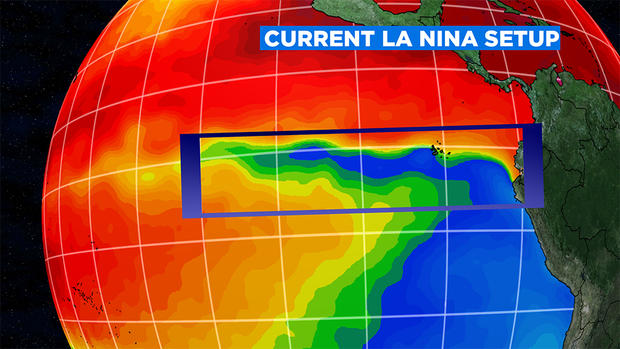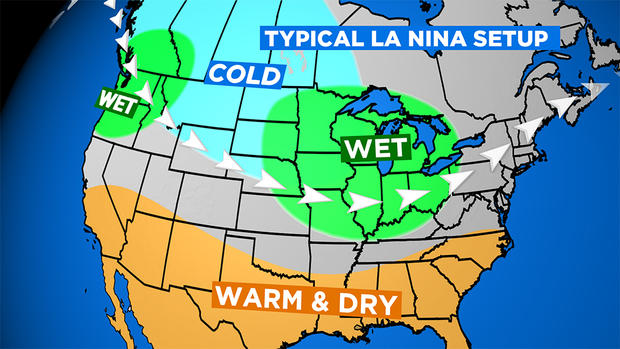What Does NOAA's Winter Outlook Mean For New England? Look To La Nina
BOSTON (CBS) -- NOAA released their 2020-2021 winter outlook (months of Dec-Jan-Feb) Thursday and to no surprise it looks very much like a classic La Nina pattern. La Nina is by far the biggest factor or wild card for the upcoming winter, having large impacts across the globe including here in the United States and New England.
La Nina is a cooling of the Pacific Ocean water off of the central South American coastline (the opposite of El Nino, which is a warming of those waters.)
A typical La Nina pattern favors warm and dry conditions across the southern tier of the U.S., and wetter than average conditions across the Pacific Northwest and parts of the Upper Midwest. The cold is typically centered in the northern plains and at times in the upper Midwest. And this is nearly exactly what NOAA is forecast for this winter.
So what about New England? Well, this largely depends on how strong the La Nina gets. A weaker La Nina would likely increase our chances for more colder and snowier periods this winter here (allowing other atmospheric factors to come into play), while a stronger La Nina typically leads to less snow, particularly in southern New England. Many times, with a northern storm track in a La Nina winter, the northern ski areas tend to do well in the snow department while southern New England can be prone to more rain.
Of course, all it takes is a couple big nor'easters to change the perception and record books for any single New England winter, thus why it is so hard to predict seasonal snow amounts in general.
Temperatures are a bit harder to predict in a New England La Nina winter, but current odds (as seen on NOAA's graphics) are favoring a warmer than average season here.
While NOAA's winter outlook is largely La Nina centered, there will undoubtedly be many other atmospheric factors at play which will affect the outcome of winter here in New England. The precise location of anomalously warm pools of water off the West Coast, the amount of blocking up in Canada and Greenland. . . the list goes on and on, and we will be studying all of this in the coming weeks before giving you our WBZ winter forecast later in November!
Follow Terry on Twitter @TerryWBZ





